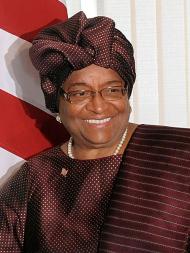Don Giovanni (K. 527; complete title: Il dissoluto punito, ossia il Don Giovanni, literally The Rake Punished, or Don Giovanni) is an opera in two acts with music by Wolfgang Amadeus Mozart and Italian libretto by Lorenzo Da Ponte. It is based on the legends of Don Juan, a fictional libertine and seducer. It was premiered by the Prague Italian opera at the Teatro di Praga (now called the Estates Theatre) on October 29, 1787. Da Ponte's libretto was billed, like many of its time, as dramma giocoso, a term that denotes a mixing of serious and comic action. Mozart entered the work into his catalogue as an opera buffa. Although sometimes classified as comic, it blends comedy, melodrama and supernatural elements.
A staple of the standard operatic repertoire, Don Giovanni is currently tenth on the Operabase list of the most-performed operas worldwide. It has also proved a fruitful subject for writers and philosophers.
Composition and premieres
The score was completed on 28 October 1787 after Da Ponte was recalled to Vienna to work on another opera. Reports about the last-minute completion of the overture conflict; some say it was completed the day before the premiere, some on the very day. More likely it was completed the day before, in light of the fact that Mozart recorded the completion of the opera on 28 October. The score calls for double woodwinds, two horns, two trumpets, three trombones (alto, tenor, bass), timpani, basso continuo for the recitatives, and the usual string section. The composer also specified occasional special musical effects. For the ballroom scene at the end of the first act, Mozart calls for no fewer than three onstage ensembles to play separate dance music in synchronization, each in their respective meter, accompanying the dancing of the principal characters. In act 2, Giovanni is seen to play the mandolin, accompanied by pizzicato strings. In the same act, two of the Commendatore's interventions ("Di rider finirai pria dell'aurora" and "Ribaldo, audace, lascia a' morti la pace") are sustained by trombones and bassoons, albeit this moment occurs during a recitativo secco.
The opera was first performed on 29 October 1787 in Prague under its full title of Il Dissoluto Punito ossia il Don Giovanni – Dramma giocoso in due atti (The Rake punished, or Don Giovanni, a dramma giocoso in two acts). The work was rapturously received, as was often true of Mozart's work in Prague; see Mozart and Prague. The Prager Oberamtszeitung reported, "Connoisseurs and musicians say that Prague has never heard the like," and "the opera ... is extremely difficult to perform." Provincialnachrichten of Vienna reported, "Herr Mozart conducted in person and was welcomed joyously and jubilantly by the numerous gathering."
Mozart also supervised the Vienna premiere of the work, which took place on May 7, 1788. For this production, he wrote two new arias with corresponding recitatives: Don Ottavio's aria "Dalla sua pace" (K. 540a, composed on April 24 for the tenor Francesco Morella), Elvira's aria "In quali eccessi ... Mi tradì quell'alma ingrata" (K. 540c, composed on April 30 for the soprano Caterina Cavalieri) and the duet between Leporello and Zerlina "Per queste tue manine" (K. 540b, composed on April 28).

